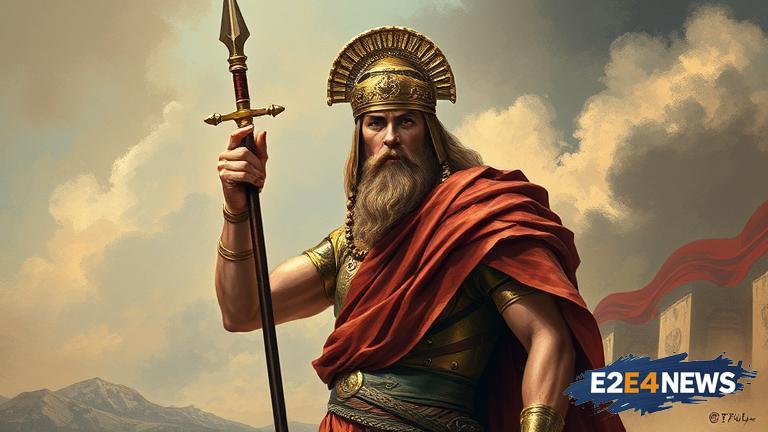Alexander the Great, born in 356 BCE in Pella, Macedonia, was a king of the ancient Greek kingdom of Macedon who is considered one of the greatest military minds in history. His father, King Philip II, was a renowned military leader who unified the fractious city-states of Greece under his rule. Alexander’s mother, Olympias, was a member of the royal family of neighboring Epirus. From a young age, Alexander was tutored by the famous philosopher Aristotle, who instilled in him a love of literature, science, and philosophy. Alexander’s ambition and military prowess were evident from an early age, and he quickly proved himself to be a skilled and fearless warrior. In 336 BCE, Alexander’s father was assassinated, and he succeeded him as king at the age of 20. Alexander’s first major military campaign was against the Persians, who had dominated the region for centuries. He defeated the Persian satraps, or governors, at the Battle of Granicus in 334 BCE, and then went on to conquer a vast portion of the Persian Empire, including modern-day Turkey, Egypt, Babylon, and Persepolis. Alexander’s military tactics were innovative and effective, and he was able to inspire loyalty and devotion in his troops. He also founded over 70 cities, including Alexandria in Egypt, which became a major center of culture and learning. Alexander’s legacy extends far beyond his military conquests, as he spread Greek language and culture throughout his empire, and his campaigns helped to facilitate the exchange of ideas and technologies between East and West. Despite his many achievements, Alexander’s life was cut short when he died of a fever in Babylon in 323 BCE at the age of 32. The exact circumstances of his death are still debated among historians, with some attributing it to poisoning or assassination. After Alexander’s death, his empire was divided among his generals, who went on to found their own kingdoms. Alexander’s impact on history is still felt today, and he remains one of the most fascinating and influential figures of the ancient world. His life and achievements have been the subject of countless books, films, and other works of art, and continue to inspire and captivate people around the world. In addition to his military conquests, Alexander was also a patron of the arts and sciences, and his court attracted scholars, poets, and philosophers from all over the ancient world. Alexander’s relationship with his mother, Olympias, was particularly close, and she played an important role in his early life and reign. Alexander’s marriage to Roxana, a Persian princess, was also significant, as it helped to cement his relationship with the Persian nobility and secure his hold on the empire. Despite the many challenges and controversies that surrounded his life and reign, Alexander remains one of the most admired and respected leaders in history, and his legacy continues to inspire and influence people around the world. Alexander’s military campaigns were not limited to the Persian Empire, as he also conquered a significant portion of the Indian subcontinent, and his armies reached as far as the Indus River. Alexander’s impact on the ancient world was not limited to his military conquests, as he also played a significant role in the spread of Greek culture and language throughout his empire. The city of Alexandria, which Alexander founded in Egypt, became a major center of learning and culture, and was home to the famous Library of Alexandria, which was one of the largest and most significant libraries of the ancient world. Alexander’s legacy has endured for centuries, and he remains one of the most fascinating and influential figures of the ancient world. His life and achievements continue to inspire and captivate people around the world, and his impact on history is still felt today.
